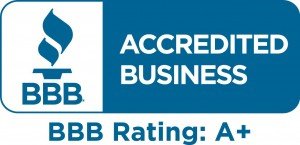One question I get from time to time from applicants is: How detailed should my LinkedIn profile be? Or Should my resume mirror my LinkedIn profile?
Although a resume and LinkedIn profile to some people may seem similar, they are still very different modes of communication. LinkedIn is an online professional network that has grown exponentially over the years and has become an incredible resource for employers, employees and applicants. That said, there are still companies and job seekers that choose to search for talent or opportunity in other arenas such as employment agencies, referrals, online job boards or good old fashion person-to-person networking. Here are some tips of what your LinkedIn online profile should contain.
LinkedIn Profile must-haves
- Profile: Work History Overview: Be brief and concise. Save the detail for the personal resume and interview. Some experts say you should post as much as allowed, but when a person is reviewing a profile, you have mere seconds to make an impression. If you overload your profile, readers may dismiss the mass content.
- Profile: Current and up-to-date position listed: This is something we’ve run into from time to time with applicants. When hiring managers have a hiring demand, they may search LinkedIn for people currently working on a position. If you don’t take the time to update your current postion, you may miss an opportunity down the road.
- Keywords/Phrases: Use keywords and phrases that are applicable to your industry. If you want to be searchable, be sure and strategically place keywords in your profile. A little effort can make a huge difference.
- Explore and build your LinkedIn network. Networking is always a good thing whether done online or in person. Use your online network to strengthen your in-person one. Connect online with colleagues and companies you’ve worked with in the past and then let your online network grow from there. Depending upon your field, like sales for example, expanding your network can lead to more opportunities.
US Careers posted an article that describes a little different approach to differentiating the two. Read what other experts are recommending.
Resume Intel
There are key reasons to keep your resume different. Job seekers, for example, may need to tailor their resume to the position they’re applying for. Reviewing a formal resume is still the preferred mode to evaluate a person for employment, regardless of an online profile. Lastly, a resume is you on paper including personal information such as name, address, email and phone. Your online profile should never have personal detail that could harm your identity. Keep that in mind when you’re posting for positions online.
Need help creating the best resume to feature your skills? Check back as we plan on doing a special feature on the key elements to today’s resume.





